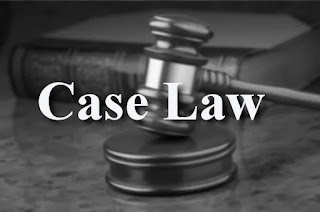MALITA
BANDA v THE PEOPLE (1978) Z.R. 223 (S.C.)
SUPREME
COURT
SILUNGWE
,C.J., BARON, D.C.J. AND CHOMBA, J.S.
21ST
FEBRUARY, AND 23RD JUNE, 1978
(S.C.Z.
JUDGMENT NO. 26 OF 1978)
Flynote
Criminal
law and procedure - Fitness to plead- The defense of insanity
Cases
cited:
(1) Mbaye v The People (1975) Z.R. 74.
(2)
Sianzele v The People S.C.Z. Judgment
No. 19 of 1977.
Legislation
referred to:
Criminal
Procedure Code, Cap. 160, ss. 160, 161, 163, 165, 167.
Supreme
Court Act, 1973, s. 15 (4).
For
the appellant: In
person.
For
the respondent: K.R.K.
Tampi, State Advocate.
___________________________________
Judgment
x
SILUNGWE,
C.J.: delivered the judgment of the court.
This
is an appeal against an order made under s. 161 (2) (b) of the Criminal
Procedure Code for the detention of the appellant during the President's
pleasure.
The
circumstances of the case were that, on 4th June, 1974, the appellant appeared
before the High Court on a charge of murdering her two-year-old daughter. The
learned defence counsel told the court that his client seemed to be mentally
unbalanced and that in consequence of this circumstance he had not been able to
obtain proper instructions from her. He then applied to the court for an order
so that the appellant could be medically examined to ascertain whether she was
"fit to plead and also what the state of (her) mind was at the time"
she allegedly committed the offence. The application was granted.
On 9th February, 1976, the appellant was once again before the trial court. Upon the strength of a psychiatrist's report, the court entered a plea of not guilty and a hearing ensued. At the end of the case for the prosecution the learned defence counsel told the court that he did not propose to tender any evidence for the defence; he then, quite improperly, asked the court to make a special finding. In its judgment the court found the appellant "not guilty by reason of insanity under section 167 of cap. 160 and further order(ed) that the accused be detained during the President's pleasure in accordance with section 161 (2) (b) of Cap. 160". We shall shortly return to the aforementioned finding and order.
Pursuant
to the order for a medical examination, the appellant was duly examined and
found to be suffering from a chronic illness called schizophrenia which is a
serious mental disorder. As a result of that illness, the appellant was, in the
psychiatrist's opinion, "unfit to plead, to stand trial and make her
defence". Although the trial court made no express finding to the effect
that the appellant was unfit to plead, that is to say, that she was incapable
of making a proper defence in terms of s. 160, we are satisfied that by
implication the court did make such a determination because it made a specific
reference to the psychiatrist's report which articulated the appellant's
unfitness to plead and thereafter the court did precisely what s. 161 required
it to do, namely, enter a plea of not guilty and proceed to hear the evidence.
When
the evidence had been given the court, as already stated, made a special
finding under s. 167 and then proceeded to order the appellant's detention
under s. 161 (2) (b). By reason of the fact that this was a case of incapacity
to make a proper defence, it was not competent for the trial court to make a
special finding under s. 167 (1). Mbaye v The People (1) is precisely in point.
Although the detention order was expressed to be made under s. 161 (2) (b) it
is clear from the wording of the order that the learned judge regarded the
detention as consequent on the special finding, obviously overlooking the fact
that s. 167 contains its own provision for a detention order. Thus, although
the detention order that was made under s. 161 was the inevitable result of the
evidence, it was in our view made for the wrong reason and it is therefore
necessary for the position to be regularised. In Sianzele v The People (2) we
held that no appeal lies against an order made under s. 161 (2) (b). That case
is, however, authority only where the order has been properly made on the
merits; but there is always an appeal from an order made without jurisdiction
as in the case now before us.
For the reasons given, the special finding as well as the detention order are both set aside and by virtue of the powers conferred upon us by s. 15 (4) of the Supreme Court Act, we direct that the appellant be detained during the President's pleasure in terms of s. 161 (2) (b). If the periodic reports submitted to the President under s. 163 (3) disclose that the appellant may now be fit to plead, that question will be re-examined and determined as provided for in s. 165 (1); if the appellant is found to be fit to plead the matter will proceed in accordance with s. 165 (2).
Finding and order set aside and substituted
